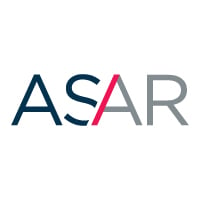

Senior legal advisor | Kuwait Gulf Oil Company



Farah Al-Asfour
Senior legal advisor | Kuwait Gulf Oil Company
What are the major cases or transactions you have been involved in recently?
I currently serve as lead legal counsel on several high-impact upstream initiatives under the Khafji Joint Operations (KJO) framework between Kuwait and Saudi Arabia. One of the most significant is the USD 10 billion Al-Dorra offshore gas field project, where I have been advising on the AGRU licensing agreement, multi-jurisdictional structuring, and the review of the EPC agreement for the Offshore Processing Facility (OPF).
In parallel, I have led the legal review of the Khafji Joint Operations Agreement (KJOA) – a foundational document that governs cross-border energy cooperation in the Partitioned Zone. The objective is to streamline operations, reinforce treaty compliance, and ensure long-term legal alignment between the two states.
I also initiated and led a ‘lessons learnt’ legal review for the Wafra Joint Operations (WJO), modelled on best practices from the Al-Zour Refinery Project. The goal was to translate insights from previous projects into practical improvements for future governance, legal structuring, and operational readiness.
Prior to joining KGOC, I was with Kuwait Integrated Petroleum Industries Company (KIPIC), where I managed ICC Dispute Review Board proceedings involving claims exceeding USD 500 million and supported the financing and execution of major EPC contracts in Kuwait’s refining and LNG sectors.
How do you approach managing legal aspects during periods of instability or crises, and how does your legal strategy align with broader business objectives?
I believe in being proactive rather than reactive. In periods of uncertainty – whether regulatory, operational, or geopolitical – I focus on maintaining clarity, continuity, and strategic alignment. My goal is to ensure that the legal team does not merely protect the business but enables it to move forward with confidence.
By embedding legal foresight into business planning and governance structures, I help ensure that legal risks are addressed early, supporting smarter, faster decision-making and helping the organisation remain resilient in challenging conditions.
What factors influence your team’s decision to use external legal services versus handling matters in-house, and what criteria are used to evaluate their performance?
We typically engage external counsel for complex, high-value, or cross-border matters – particularly those involving foreign law, international arbitration, or where independent legal validation adds value. Most of our regulatory, contractual, and operational matters are handled in-house, where deep institutional knowledge and alignment with the business are essential.
When evaluating external firms, we consider subject-matter depth, practical advice, and responsiveness. We value those who bring not only technical skill but also a solid understanding of our operating context. Performance is measured by clarity of output, consistency, and how seamlessly they integrate with our internal team.
What emerging technologies do you see as having the most significant impact on the legal profession, and how do you stay updated on these developments?
Technology is transforming how in-house legal teams operate. AI-assisted contract review, legal data analytics, and automated compliance tools are helping us move from manual, reactive processes to more strategic, insight-driven work.
In cross-border projects such as those at KGOC, I see real value in tools that use natural language processing to scan and analyse multi-jurisdictional agreements, flag risk areas, and improve due diligence. Automated regulatory tracking tools are also becoming vital, particularly when operating under layered sovereign and institutional frameworks.
To stay up to date, I engage with legal tech providers, attend sector-specific briefings, and follow developments from associations such as the ICC and IBA. I also maintain an active dialogue with peers to exchange ideas and stay ahead of practical trends shaping the in-house legal function.